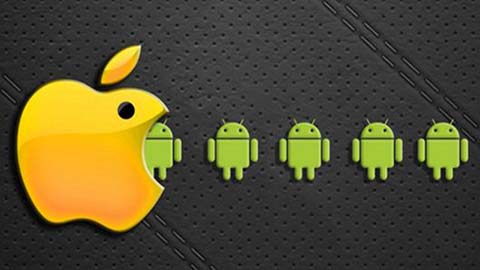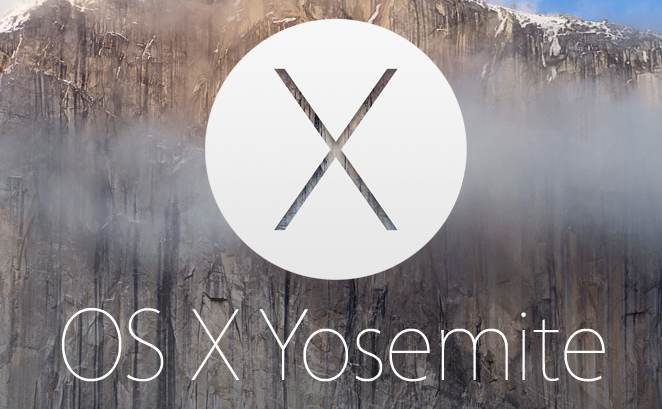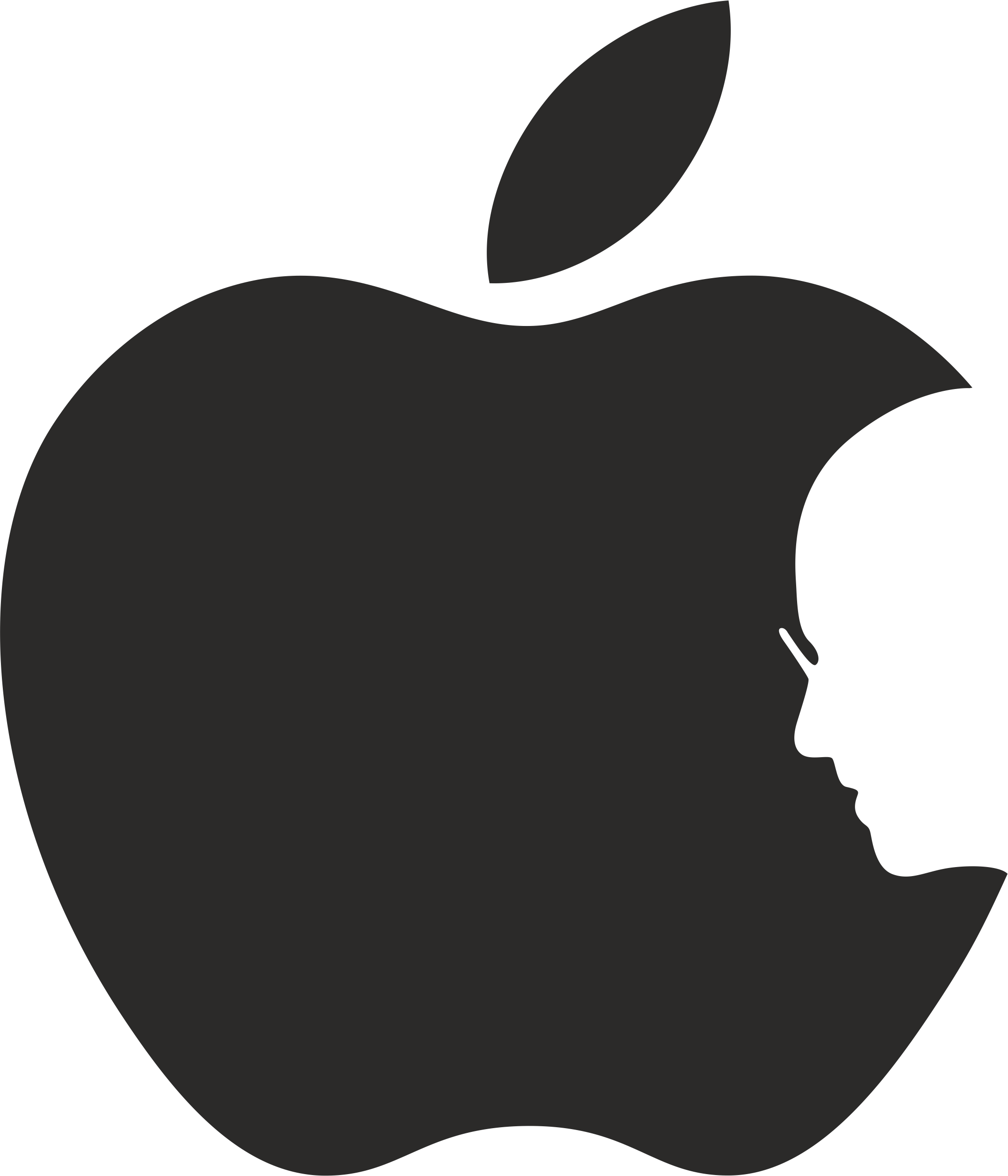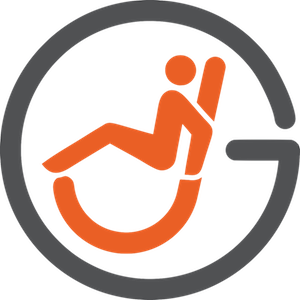After writing a bit about my favorite coffee corporation last week, I started thinking about other brands that I am particularly loyal to. I am a proud consumer** (I always think of it as doing my little piece of helping our economy chug along here ;)) and although I feel it to be terribly cliché, I’m going to draw the line in the sand. Android fans, eat your heart out.
I sincerely, totally, and completely respect and admire the innovation that has been produced by Apple.
The reason I considered this post is because today marks 3 years to the day since Steve Jobs passed away from respiratory arrest that was at least partially caused by a pancreas neuroendocrine tumor. I remember being terribly shocked by the news of his passing. I always remember him as an intensely private person because there was always speculation about his health in the media, but no one ever really knew what was going on. As with many great people, after his death, many suddenly and more openly acknowledged how much of a visionary they thought he was. Before his death, I didn’t know much about him as a person, businessman, presenter, innovator, or anything. I just knew that he was THE guy at Apple.
Therefore, I guess I should preface the remainder of this post by admitting: I actually used to absolutely despise Apple. I didn’t think their software was intuitive; I actually thought it too difficult to learn/different from the Windows OS I was used to. I thought their hardware was too trendy and “out there,” I felt like they didn’t treat their customers well and only as numbers and opportunities for profit, and I couldn’t stand the aesthetics of many of their products. In fact, I also thought that people who would take the time to broadcast their love for a brand or company were senseless. How do you even develop such loyalty – unless you’re crazy and way too into it? And, too, why does that loyalty matter and why would anyone care?
Well as I got older, and I spent more and more time looking at my phone, laptop, whatever: all of these things became important to me, too! I was becoming the crazy one. The transformation began around the day that I learned about Jobs’ intentional commitment to creating a user-friendly platform across devices, particularly due to the intuition of using a cell phone with one hand, to the multitasking gestures when using my tablet that are also transferrable to themousepad on my laptop: I suddenly felt inferior when using any other OS: Droid, Windows, or whatever else.[pullquote]This uniformity does help anyone pick up an iPhone and just “know how to use it.”If they have a Droid? I’m just as good as 90 years old.[/pullquote]
Many would counter these ideas by saying, “you have no freedom. Apple controls everything you do.” And I mean…frankly, I agree. No, I can’t change the logos of icons, certain seemingly “DUH” features are not activated, and many other issues that conflict with the innovation and customization platforms that Apple touts. At the same time, this uniformity does help anyone pick up an iPhone and just “know how to use it.” If I’m in a bar and I want to give a new friend my number, if they have an iPhone, I’m more than happy to borrow it and put it in there. It’s quick. If they have a Droid? I’m just as good as 90 years old.

Even though I’ve written about this before, my physical conversion to Apple began when I dropped my BlackBerry in my dog’s water bowl back in October 2011. That’s when I decided to take the plunge, literally. When I upgraded my phone, I decided to go ahead and get the recently released iPhone 4s. That previous February, when my laptop literally blew up, I had decided to really start saving up for a new laptop, and I decided that that investment was going to be none other than the brand-spankin’ new MacBook Air’s that had just come out. So, when I finally hit my savings goal, I decided to the advice of many: that Apple products are best when used together.
And that is so, so true.
I am now the proud owner of an iPhone, iPad, and a MacBook. I use many other Apple devices, like an Apple TV, a TimeCampsule, two of their keyboards, a Magic Mouse, and back in the day I also had an iPod, one of the older ones with the physical spinny wheel on them. I don’t make this list to broadcast my brand loyalty but rather to highlight how wonderful Apple products are when they are used TOGETHER.
I can use my iPad to turn on my MacBook. I can use my iPhone as a remote for my Apple TV. I can stop watching a movie once I get off the train and pick it up on my television when I get home. I can keep track of my work calendar from the comfort of my bed and wake up to an alarm that I set across all my devices. I can listen to Pandora while in the shower and transfer that music via bluetooth to my car when I head to work. Yes, many of these features are doable through other smart devices but, for me, it’s even more seamless when Apple’s iOS or OS is involved. What I’ve discovered over the years is that Apple’s products were truly crafted to be used in unison. Especially with the features like HandOff that are coming out in the new OS X Yosemite this fall.

When working for my college’s newspaper, I had the opportunity to interview Google’s Executive Chairman, Eric Schmidt. Over the years, Apple and Google’s relationship has evolved into a sort of rivalry (I’ve always believed that Apple should have stuck with Google Maps, but they don’t really seek my opinion too much for some reason), but in this article earlier this month, Schmidt even shared candidly that Steve Jobs is his hero. Schmidt, being a Blacksburg native and even a former member of Apple’s board, had a long-running friendship with his eventual rival. He recalls Jobs as a truly exceptional person. Even though I didn’t know him, I do, too.
It’s so evident that so much of what he envisioned has stuck with the company. Now, obviously you can’t use the new iPhone 6’s with just one hand, but the ideas behind the way they operate are so consistent with what Apple was founded on. And, as you may already know, consistency is very, VERY important to me. I hope they keep that up.

**Consumer Disclaimer | Looking back, this post may have come off as a little materialistic. Yet, I have to admit: I am a consumer. I believe in taking full advantage of the fact I live in a first world country, and there is never a moment that I take that for granted.
From Starbucks to Apple and from a 10-minute trip grocery store to social drinks at a bar there are many things that, on a daily basis, I acknowledge that I am thankful for when there are others in our world that may not have access to those same opportunities nor would they necessarily want them. Whether it’s a homeless person in my own community, a millionaire who lives 50 minutes away from their nearest grocer, or the king of a colony who doesn’t have the freedom and ability to venture out on his own…there are varying perspectives of privilege and consumerism that you might have considered (or at least I hope you did) while reading this post.
Finally, I also take great pride in not claiming that the examples of people aforementioned are ‘less fortunate’ or ‘more fortunate’ – because it’s all a case of individual perspective. Someone in a third would country could truthfully view themselves as profoundly fortunate, just as I share that perspective of myself, and I’m not here to take that away from them. I just wanted to take a few moments to share thoughts about something that is important to me, particularly in the space of technology. I hope you found that in this analysis, and nothing more. Thanks for reading.
